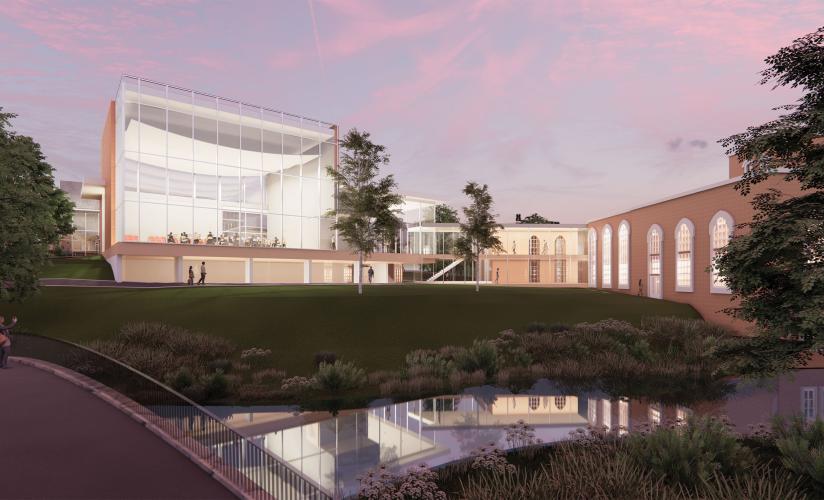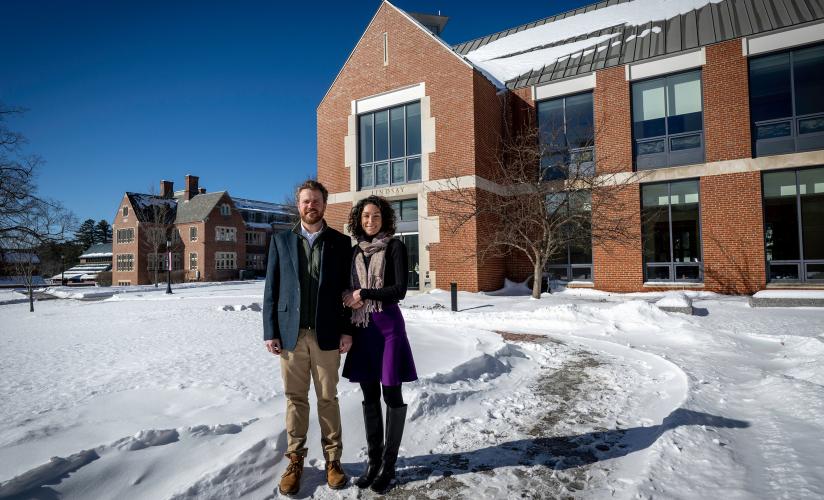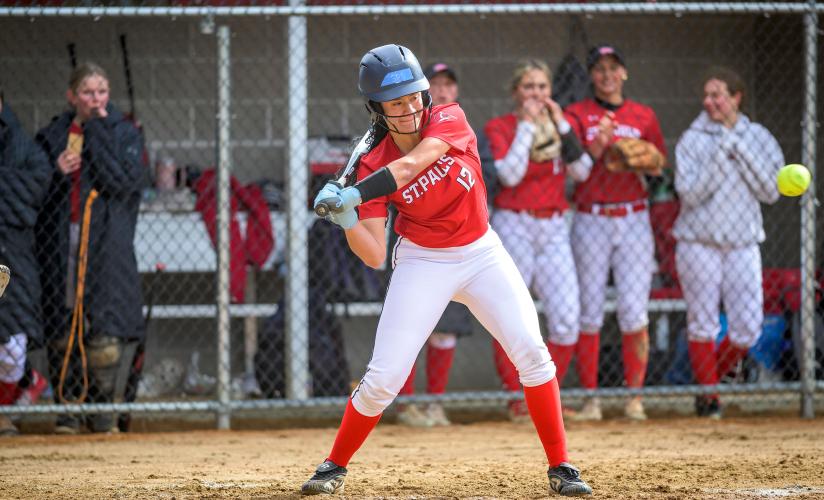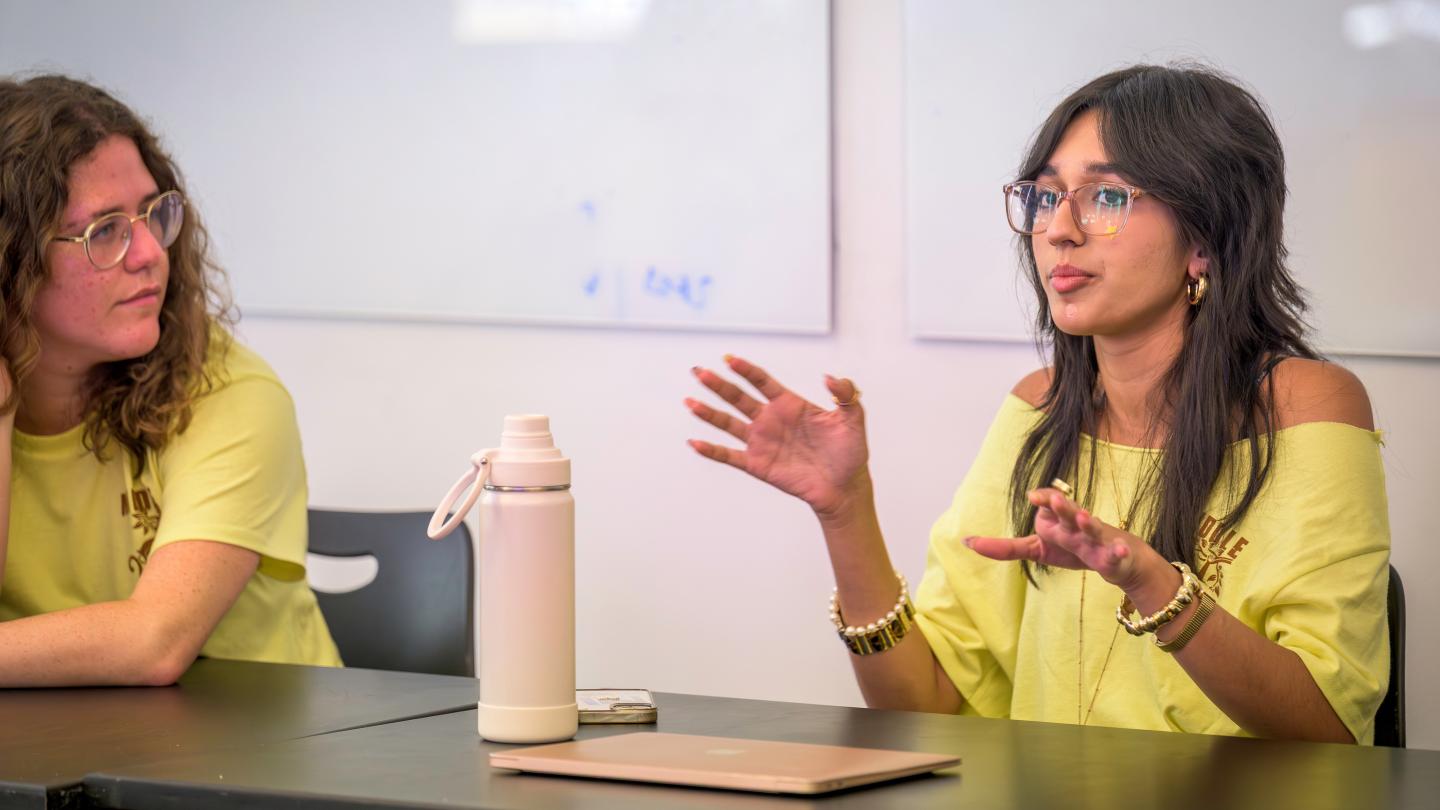

Summer program’s Biomedical Ethics class helps New Hampshire students build deeper foundations for their perspectives.
BY IAN ALDRICH
Complicated issues demand thoughtful discussions. Finding the space and time for those discussions can sometimes feel difficult, but the ASP’s Biomedical Ethics course shows that it doesn’t have to be. Over five dynamic weeks, the class dives deep into some of today’s most emotionally charged medical issues, from assisted suicide and human experimentation to stem cell research and abortion.
“The goal isn’t to change anyone’s mind,” says SPS Science Teacher Dr. Allyson “Ally” Bryant, who co-taught this summer’s course with Clay Splawn of the Berkshire School. “But we do want the students to understand why they view a topic the way they do so they can develop a deeper foundation for their perspective.”
The work to do that takes many different forms: news and public policy analysis, in-depth discussions about real world examples, guest lectures, classroom debates and field trips to talk directly with people who are on the frontlines of various healthcare issues.
The curriculum is structured around weekly themes: the foundation of ethics and patient autonomy, the beginning of life ethics, biomedical research and end of life ethics and organ donation. In the final week, students work on a capstone project that pulls from the work they’ve done over the prior month.
For Bryant, who has taught at SPS since 2019, the work is more than an academic exercise. In the coming years, the course’s 20 students will be old enough to vote. The better equipped they are to analyze the important topics of the day and current ethical issues around them, she says, the more prepared they’ll feel when they step into the voting booth.
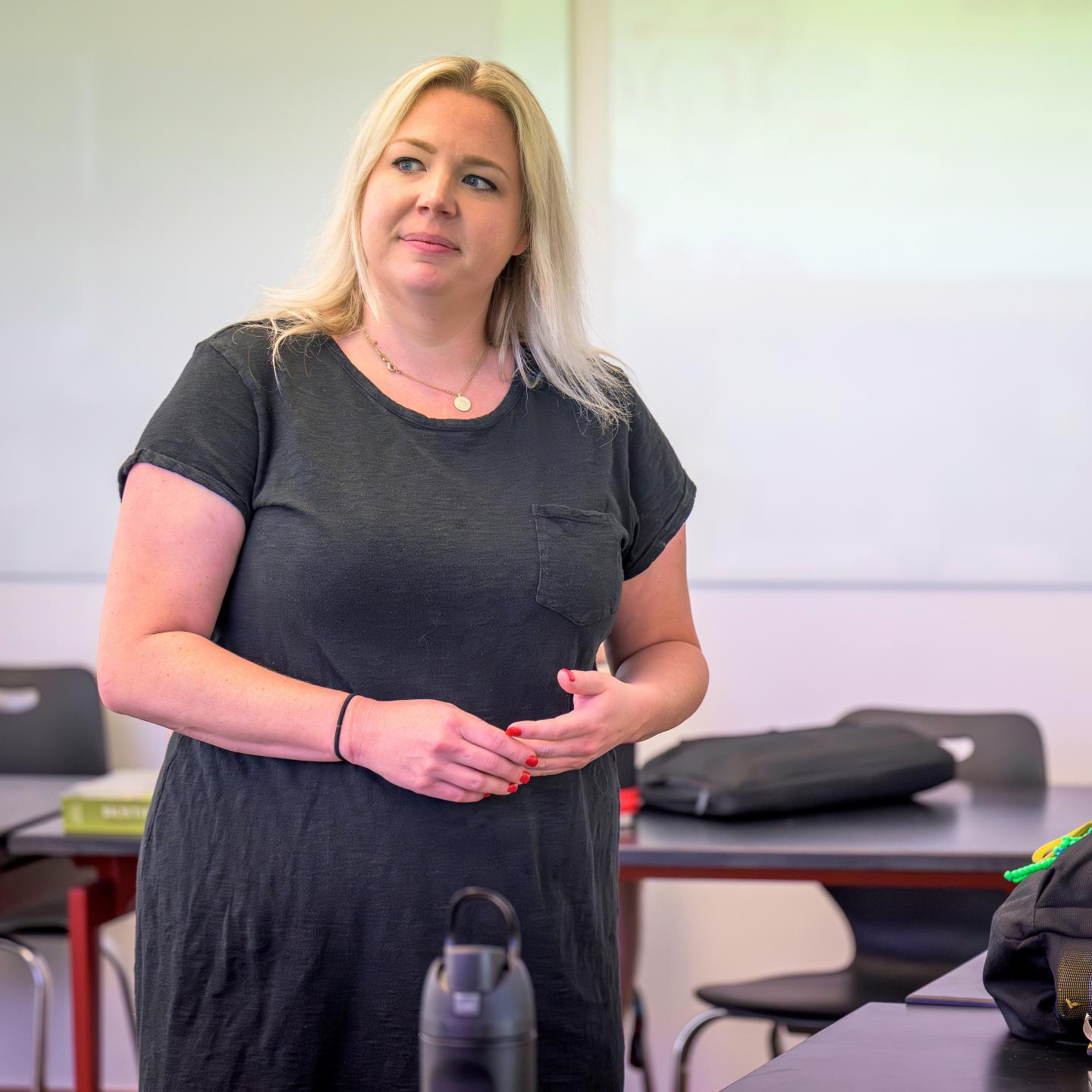
“The goal isn’t to change anyone’s mind,” says SPS Science Teacher Dr. Allyson “Ally” Bryant, who co-taught this summer’s course with Clay Splawn of the Berkshire School. “But we do want the students to understand why they view a topic the way they do so they can develop a deeper foundation for their perspective.”
“There’s a lot of misinformation out there,” she says. “And it’s coming at them so fast. They might see a Reel on something and whatever message it’s delivering may stick. This is about getting them to understand what they’re looking at and consuming. To ask tough questions, to be curious and not just take things at face value.”
Sonia Kelker appreciated the discourse. A rising senior at Nashua High School South, Kelker chose Biomedical Ethics for her ASP major course because she’s interested in a career in science and wanted a deeper understanding of the issues she may face in the field.
“The class truly expanded my perspective on issues I’d only ever viewed through a black and white lens before,” she says. “It is more important than ever for the next generation to understand the full complexity of these debates…I’m quicker to question the legitimacy of arguments, even if they favor my opinion. Furthermore, I gained great confidence in my voice and the relevance of my opinion in discussions. Dr. Bryant and [her teaching intern] Mr. [Amir] Johnson did a wonderful job of pushing all of us past our comfort zones.”
Kelker plans to hold tight to that confidence she’s gained not just in Bryant’s class but from her ASP experience overall when she returns to high school this fall. “Coming from a school where the atmosphere can be quite competitive, I’d grown used to keeping my head down,” she says. “But at the ASP, especially in my dorm, I learned the value of connection. Ultimately, compassion doesn’t have to come at the cost of ambition, and ASP has done a phenomenal job of teaching me that.”
Bryant marvels at the environment her students have helped foster. It’s easy to stay quiet and just merge into the consensus. It takes courage, she says, to voice opinion and even more bravery to see the holes in your own argument.
“This class demands a lot of students,” she says. “There’s a lot of reading and homework to enable them to dive deep into a topic. But the fact that they aren’t graded, I think gives them the feeling that they can take risks. So, it’s been really fun to work with them — to be there when they defend their perspective and also pivot when they see or understand something new.”

